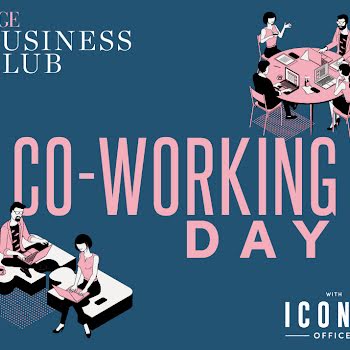Hit Me Up: I’m worried I’ll be permanently replaced while on maternity leave
By Rhona Mcauliffe
14th Nov 2018
14th Nov 2018
Each week our resident agony aunt Rhona McAuliffe helps a reader with a problem. This week, a woman from Kildare seeks advice about maternity leave.
Dear Rhona,
I am pregnant and about to go on maternity leave with my first child. I manage a team of about 16 people and have been told that I’m ‘irreplaceable’ but I worry that’s not the case.
My boss is a workaholic and doesn’t respect personal and social boundaries. She expects 150% at all times. I’ve found my own mat replacement, who has great experience and is eager to get started.
With only four weeks left in the office, I can feel a change in how my boss is behaving. She’s calling my cover (who doesn’t start until I go) to discuss upcoming meetings, scheduled for the first few weeks of my leave and is generally less engaged with me; often talking over me in meetings and dismissing my opinions.
I work long days, weekends and late nights for my job to meet my boss’s unrealistic expectations but rarely resent it because I enjoy what I do. My career means so much to me and I worry that I’m leaving the way open for other team members, as well as my direct replacement, to slip into the role.
I’m feeling very vulnerable and anxious, questioning the quality of my own work and wondering how it will stand up in my absence. I know it’s illegal to sack someone on mat leave but it has and does happen.
How can I prevent it from happening to me?
Anon, Kildare.
Congratulations!
Congratulations! You’ve won the biological lottery and are only weeks away from your first expedition to The Upside Down.
Ahead of such a seismic event, the baby-book ideal is that we are calm and centred; spending quiet time massaging our collective perineum with almond oil, while mainlining raspberry tea. The reality is, the weeks before the birth are often the most stressful and chaotic for expectant mums; whether that’s finishing up at work, balancing the needs of other siblings or finally submitting to the physical rigours of a ten-month gestation.
On top of that, we really are heading into the unknown. We don’t know what kind of birth we’ll have, how we’ll feel afterwards, if the baby is a sleeper or a ‘character’, if he or she will mistake nipples for bottles or scream the street down in colic-triggered agony.
Despite our best efforts, it’s impossible to plan for every eventuality. And to a lesser extent, the same goes for work – much of what happens in your absence is out of your control. This shouldn’t be the case; women should feel secure in their role and protected by their employers when they make the decision to start a family, but corporate and small business culture has far to go.
The numbers don’t lie
A 2018 international report from PwC, Time to Talk: What Has to Change for Women at Work, shows that 42% felt nervous about the impact children might have on their careers; 48% said they were overlooked for career advancement because they had children, and 37% did not take full maternity leave because of career pressure.
In a recent recruitireland.com survey, 19% of women re-entering work after maternity leave said they worried their replacement would be better than them. So, your fears are not unfounded.
New mums returning to the workplace for the first time (and mums who’ve been hot-plating work and family demands for years) are routinely shafted.
Your anxiety is also likely fuelled by your boss’s unrealistic expectations and her apparent aversion to pregnancy as a concept.
Ireland vs abroad
Although Ireland has one of the stingiest maternity benefit schemes in the EU, the US is far worse, with employers legally obliged to offer only 12 weeks unpaid leave to employees.
Because pregnancy is still openly viewed as a major inconvenience in corporate spheres, women are under pressure to make like nothing happened; to spring back to form within in weeks of the birth just to sustain their careers.
I listened to several US podcasts hosted by superhuman, goal-smashers sharing their tips on returning to atomic careers post-baby. On one, a doctor and lawyer discussed how ‘inert’ a new-born is and how those first few months at home with their first child felt like ‘such a waste.’ Hence, they started working from the get-go, with the new-born trucked in for feeds at intervals. They didn’t mention sleepless months or delirium, so I can only imagine they had day and night nannies on staff.
What they were brilliant at was executing a plan to meet their needs and means. And that’s what you need to do. Rather than worrying about being usurped, think about how you might benefit the business in a more strategic role when you return. It might be a sideways move or a promotion, but it might also mean more sociable working hours.
Our work culture still mistakes presence for productivity, so convincing your boss that your unique skills and experience might be better deployed elsewhere will be your challenge.
You could subtly plant the seed now, before you leave. You’re under no obligation to have any contact with your boss while on leave, but there’s lots of evidence to support the benefits of ‘keeping in touch’ (KIT) days, which is a UK directive.
Putting a plan together now of how you would like your leave to look (when you’re hoping to be back in the office, if you’d like monthly updates from the team, scheduling KIT days in advance with your boss etc), will help you to shape your ideal scenario. It will also be a sturdy barometer for you when you’re off, in terms of how ‘ready’ you feel to engage with work again.
If all else fails
All pre-plans should hinge on an ‘all going well…’ premise. If your boss is entirely unsupportive of your plans; tries to replace you in your absence; or is as obstructive and relentless as she currently sounds, making life for you impossible once you return, fear not!
A) You may have a legal case if you decide to take the company on, so seek advice from the Citizen’s Information.
B) Flexible working opportunities have never been so abundant. This is a time when many new mothers reassess their working life; decide to upskill, network and action a career pivot. This is also a time to take stock of a toxic work cycle which will only lead to burn-out. Unfortunately, there is no perfect solution; having children activates years of negotiating trade-offs, where previously not compromising might have been your M.O.
Put you and baby first
But right now, all you should be worrying about is looking after yourself and your baby. Try to switch off completely from work and remember that your husband is also entitled to 18 weeks unpaid parental leave between now and when your child eight years old.
Most men don’t call in those days because it might dent their career prospects. Something to chew on for later.
If you have a problem that won’t go away, our agony aunt would love to hear it. Write to Rhona at aunty.rhoner@gmail.com.























